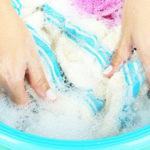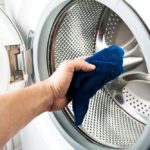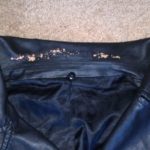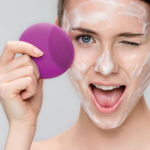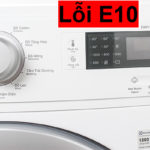Eczema flare-ups can greatly affect the daily lives of those suffering from it. To minimize these flare-ups, here are some things to keep in mind when doing your laundry to prevent itching:
1. Check the detergent’s ingredients
While detergent is necessary for cleaning clothes, it can also be a major irritant for those with eczema. Some ingredients to avoid if you have sensitive skin include:
- Dyes
- Fragrance allergens
- Sulfates
- Fabric softeners
- Optical brighteners, which make white clothes appear brighter
It’s also important to note that people with eczema should stay away from fragranced products like laundry detergents and fabric softeners. The fragrance can aggravate the skin of those with eczema.
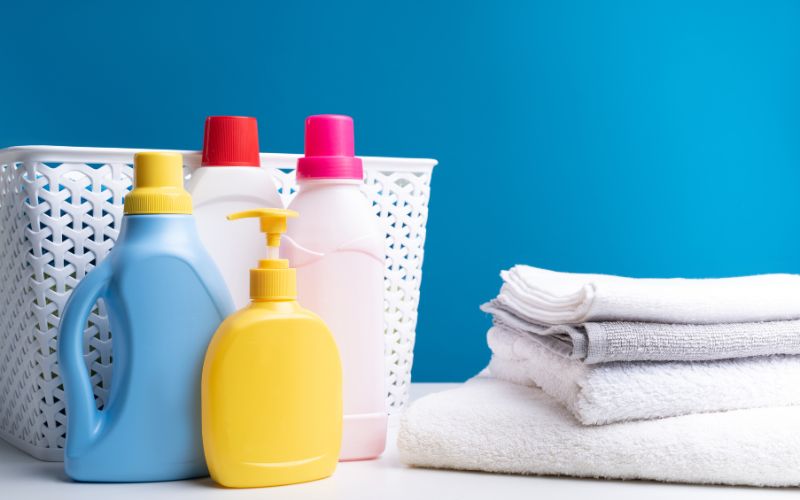 Check detergent ingredients
Check detergent ingredients
2. Don’t overuse detergent
To reduce skin irritation, only use the recommended amount of detergent when washing your clothes. Using too much detergent will leave excess soap that won’t be completely rinsed out. This leftover soap on your clothes can come into contact with your skin and cause irritation.
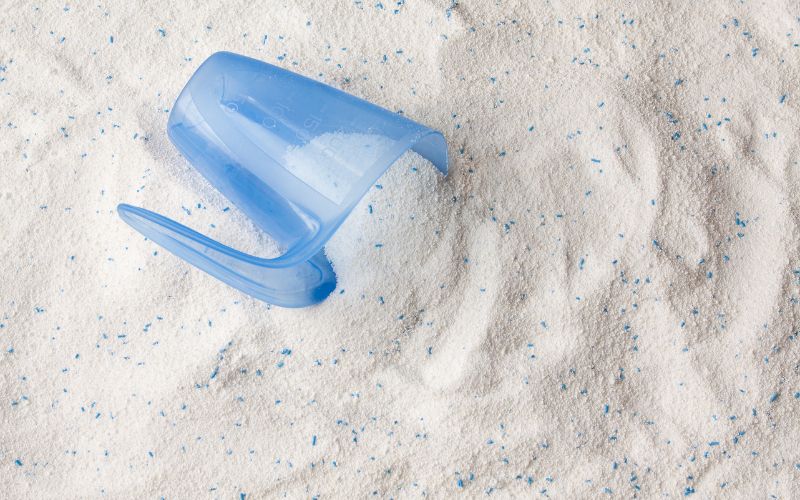 Don’t overuse detergent
Don’t overuse detergent
3. Don’t overload the washing machine
Overloading your washing machine will make it less effective, leaving soap residue on your clothes. This soap residue can then come into contact with your skin and cause irritation. It’s best to do your laundry daily and, if there are too many clothes, divide them into two loads.
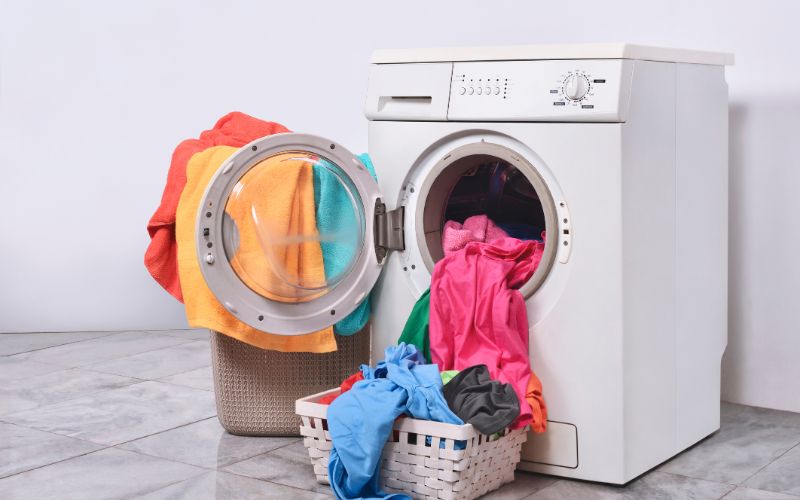 Don’t overload the washing machine
Don’t overload the washing machine
4. Opt for laundry detergent
If you have sensitive skin or eczema, it’s best to choose laundry detergent over powder detergent, especially fragrance-free options. Laundry detergent is easier to dissolve and less likely to leave powder residue on your clothes, reducing skin irritation.
 Opt for laundry detergent
Opt for laundry detergent
5. Be careful when hand-washing
When hand-washing your clothes, wear gloves to minimize contact with detergent and soap, which can irritate your skin. You can use rubber gloves and soak your clothes before washing to make the process easier.
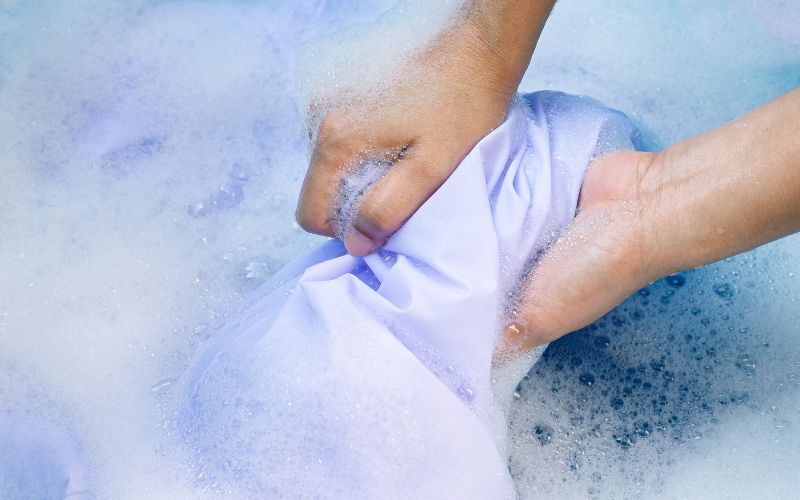 Be careful when hand-washing
Be careful when hand-washing
6. Avoid using scented dryer sheets
People with eczema should avoid using scented dryer sheets, as they are thin sheets infused with fragrances and fabric softeners, which can irritate the skin and cause redness and itching.
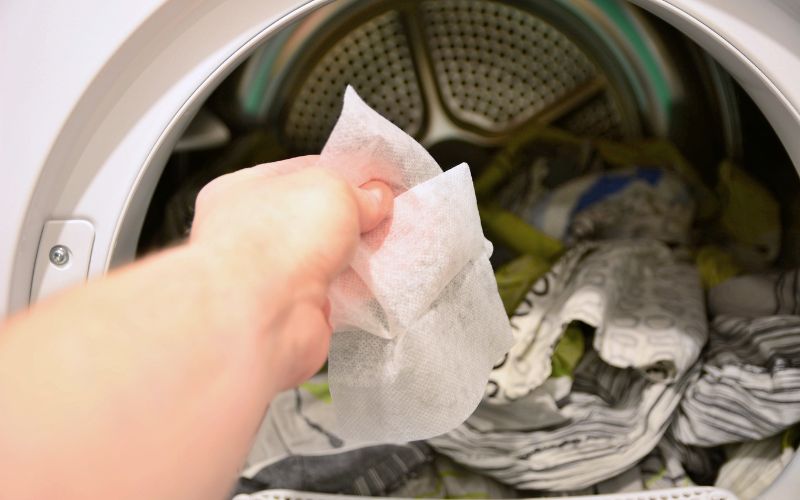 Avoid scented dryer sheets
Avoid scented dryer sheets
7. Regularly clean your washing machine
Regularly cleaning your washing machine is important if you have sensitive skin that’s easily irritated. After each wash, detergent residue and dirt can accumulate in the drum, causing mold and a musty smell over time.
Refer to the manufacturer’s instructions for cleaning the drum. You can use a specialized cleaning product or pour warm water and vinegar into the drum and run a cleaning cycle without any clothes.
Additionally, don’t forget to clean the door gasket, door opening, detergent and fabric softener compartments. After washing, keep the door open to prevent mold and musty smells.
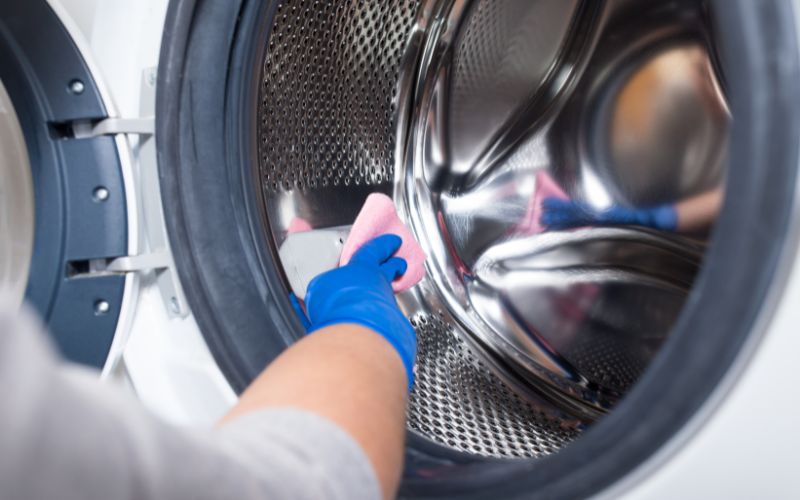 Regularly clean your washing machine
Regularly clean your washing machine
8. Always wash new clothes
Some new clothes may contain finishing sprays and chemicals that can irritate the skin. Make sure to wash them before wearing.
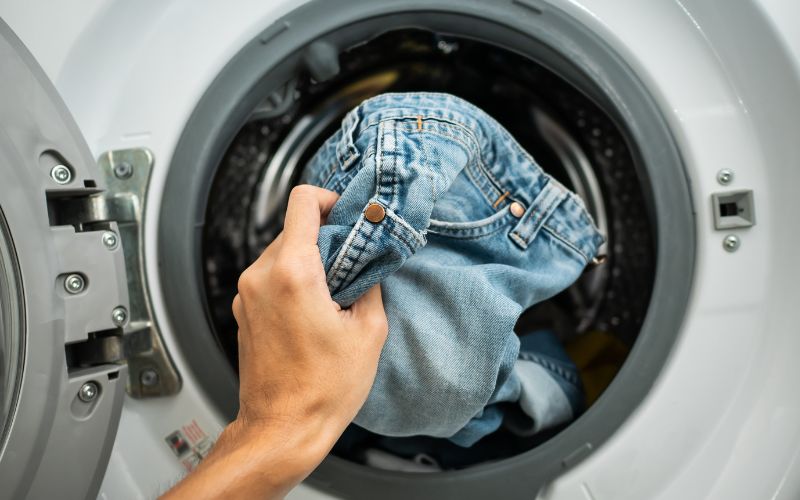 Always wash new clothes
Always wash new clothes
9. Avoid hanging clothes outdoors
Clothes hung outdoors can absorb irritants from the environment, such as dust, pollen, and mold. If you have eczema, it’s best to use a clothes dryer on a gentle setting instead. Alternatively, you can hang your clothes to dry indoors in a well-ventilated area.
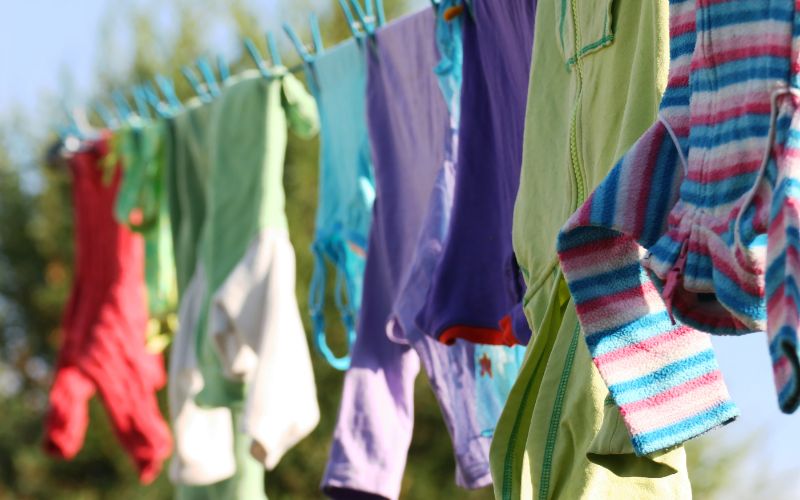 Avoid hanging clothes outdoors
Avoid hanging clothes outdoors
These are nine things to keep in mind when doing your laundry to prevent eczema flare-ups. We hope this information helps you take better care of your health!
Source: PhunuVietNam Newspaper


























